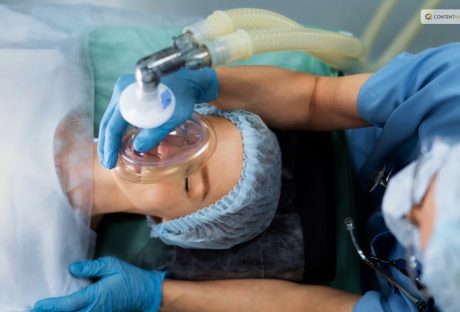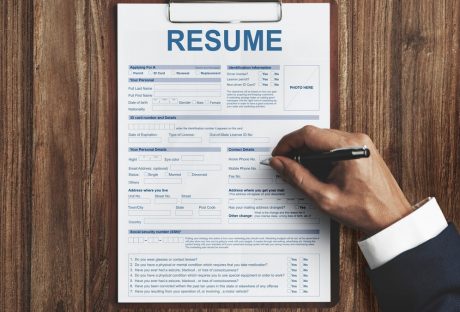Phlebotomists, also known as phlebotomy technicians, use venous or skin punctures to draw blood. These specialists are essential to the healthcare industry, especially when it comes to the diagnosis and treatment of illnesses. Phlebotomy services can be used by patients to receive transfusions, donate blood or plasma, or test for medical conditions.
In addition, phlebotomy technicians have strict guidelines to follow when labeling biological samples, handling needles and other tools, and entering patient data into databases. These workers must execute their duties carefully and safely since they deal with biological samples.
Engaging with patients and making a difference in their care is a rewarding experience for many phlebotomists. Phlebotomists who are kind can ease patients’ anxieties about having their blood drawn, as many patients find the procedure uncomfortable. These technicians can also discuss the significance of blood collection
Phlebotomist employment prospects appear to be favorable. According to BLS projections, employment in this field will increase by 22% between 2020 and 2030, while jobs in healthcare will grow by 16% and all occupations by 8% during the same period. Here is everything you need to know about how to become a phlebotomist.
How to Become a Phlebotomist?

Becoming a phlebotomist does require specialized training. Fast-paced work environments and frequent client interaction necessitate that professionals in the field possess the following qualities:
Although phlebotomists are frequently employed in laboratory environments, some have more flexibility in their work environment when they work for ambulatory services. They might still have to put in overtime or on the weekends, for example, if they work in a lab.
Learn more about how to become a phlebotomist in this article, along with the procedures for obtaining national certification and education.
Requirements on How to Become a Phlebotomist

Before getting into the details of how to become a phlebotomist let us clear up the basics. Candidates must earn a GED or complete their high school education. It could be beneficial to take science and anatomy classes in high school. After that, people can enroll in phlebotomy programs, which typically leads to certification after 4–8 months of training. Community colleges, technical schools, and trade schools all offer these kinds of programs.
To practice, phlebotomy graduates in California, Louisiana, Nevada, and Washington must obtain certification. To improve their chances of finding work, professionals in other states should still think about obtaining a postsecondary credential. Phlebotomists have access to a range of certifications, such as:
Certified Phlebotomy Technician I: Trains medical personnel to take blood samples via venous and skin punctures.
Certified Phlebotomy Technician II: Trains medical personnel to perform venous, arterial, and skin punctures to collect blood.
Limited Phlebotomy Technician: Someone who trains medical professionals to take blood via skin punctures.
Certification and Licensure

Acquiring certification to become a phlebotomist requires a written and practical exam. The test will include about 300 questions. The clinical component will include a demonstration of sample labeling, skin, and venous blood draws, and sanitization procedures. Phlebotomists can then acquire the certification from different organizations, such as:
- American Society for Clinical Pathology
- National Center for Competency Testing
- American Certification Agency for Healthcare Professionals
- American Medical Technologists
- National Healthcareer Association
- National Phlebotomy Association
- American Society of Phlebotomy Technicians
To stay up to date in their field, phlebotomists—especially those who need to renew their certification—must complete continuing education. The requirements for ongoing phlebotomist training vary by state, but most professionals must earn roughly six credits of continuing education annually. To fulfill these requirements, phlebotomists might be able to enroll in classes at community colleges or vocational schools or attend conferences.
Training to Become a Phlebotomist

Learning how to become a phlebotomist involves taking crucial courses and earning certification. Both laboratory experience and classroom instruction are prerequisites for certification programs. Topics including anatomy, physiology, and medical terminology, are typically covered in courses. Students may need to take prerequisite coursework if they are unable to demonstrate algebraic or mathematical proficiency at the high school level.
While it’s uncommon, some people with a high school or GED opt for on-the-job training rather than phlebotomy school. Phlebotomists are required by state regulations to follow certain guidelines regarding certification and ongoing education, regardless of their educational background.
What Does a Phlebotomist Do?

Before you want to know about how to become a phlebotomist, here is what you should know about what a phlebotomist does. A phlebotomist, another name for a phlebotomy technician, is a medical professional qualified to take blood samples from people. They might also help with blood drives and transfusions, depending on where they work. Apart from extracting blood from patients, they also process blood samples for analysis, gather patient data, and assist patients who might feel uneasy with needles.
The main responsibility of a phlebotomist is to take blood samples from patients as directed by a physician or other healthcare provider. On the other hand, your practice might also involve labeling vials, checking vital signs, chatting with patients about the blood draw procedure, and maintaining a sterile and clean work area. During your shift, you might also be required to carry out the following tasks, depending on where you work:
- Gather data and make updates to patient medical records.
- Fill out the paperwork and mark the vials.
- Make patients more at ease while having their blood drawn.
- Place a supply order
- Arrange the necessary vials, needles, and other supplies in the work area.
Joining a professional organization can benefit your career in the long run, even though most charge a membership fee. These organizations give you a route to certification, facilitate networking, and assist you in keeping up with new methods or regulations.
National Phlebotomy Association
The National Phlebotomy Association (NPA) provides workshops, training courses, and professional certifications, such as a credential for phlebotomy instructors, to facilitate continuing education. For full- and part-time jobs in phlebotomy and other allied health fields, the organization maintains a job board.
American Society of Phlebotomy Technicians, Inc.
The American Society of Phlebotomy Technicians, Inc. (ASPT) certifies both graduates of recognized programs and employed phlebotomy technicians. Members of NHA, ASCP, and AMT are eligible to receive benefits from the organization. Members have access to nonprofit events, cross-training workshops, and opportunities for ongoing education.
Additionally, ASPT offers an EKG fundamentals program and a phlebotomy refresher course. There is a $65 exam fee and a $35 membership fee for phlebotomy technicians.
National Healthcare Association (NHA)

NHA offers phlebotomy technicians immersive learning opportunities in addition to professional certification. Practice drills, interactive games, and quizzes are among the available resources intended for educators and students.
For allied health professionals, NHA offers a job board, resume review services, and career planning guidance.
By showcasing and improving your skills, obtaining a professional certification can increase your marketability even if your state or employer does not require it. Examine the prerequisites for the following three popular certifications.
Technician in Phlebotomy (PBT)

There are various ways to become certified in PBT offered by the American Society for Clinical Pathology (ASCP). Candidates must possess one year of full-time clinical experience or have finished an authorized phlebotomy program within the previous five years. Programs must fulfill minimum instruction requirements, be approved by the California Department of Public Health, or accredited by NAACLS.
In addition to paying a $145 application fee, candidates must pass an 80-question exam.
Certified Technician in Phlebotomy (CPT)

Candidates must successfully finish a phlebotomy training program or one to two years of supervised phlebotomy technician experience to be eligible for the National Healthcareer Association’s CPT distinction. Blood collection, patient preparation, and safety and compliance are all covered in the two-hour certification exam. The exam is $125, and you can buy a study guide or practice test to get ready.
Every two years, CPTs need to renew their certification by paying $179 and completing continuing education requirements.
Colleges That Offer Phlebotomy as a Course

Since phlebotomy students must acquire practical skills in blood withdrawal and collection, phlebotomy programs are typically offered on campus at educational institutions. The programs that prospective phlebotomists can find in the United States are listed below. However, keep in mind that this is just a small selection of all the programs that are offered all over the country. When you want to know how to become a phlebotomist, the college you must go to is an equally important aspect to consider.
Abrams College

The didactic component of Abrams College’s phlebotomy program is offered over two weeks, on Saturdays and Sundays from 9:00 AM to 5:00 PM and on Tuesdays and Thursdays from 6:00 PM to 10:00 PM in Modesto, California. This equates to 48 hours of classroom instruction. To proceed to the externship experience, students must pass all tests and complete all skill station requirements.
The 40-hour externship takes place in a hospital or clinical laboratory. Students who complete the program receive a certificate and should be qualified to apply for both state and national licensure.
Cuyahoga Community College

Cleveland, Ohio’s Cuyahoga Community College provides a short-term certificate program in laboratory phlebotomy. Students are trained in blood collection, specific blood collection techniques, medical terminology, ethics, and other related areas through a skills-based didactic curriculum. Students also need to finish an eight-week clinical externship at a hospital or clinic.
Graduates of this NAACLS-accredited program have completed it with a 100% job placement rate and a cumulative 95% pass rate on certification exams over the last three years. Furthermore, transfer programs are offered to students who wish to graduate with a bachelor’s degree from an institution in partnership.
Iowa Western Community College

The phlebotomy program at Iowa Western Community College in Council Bluffs consists of 120 hours of clinical experience and 80 hours of classroom instruction. The students receive their clinical placement assignments during the sixth week of the program. After finishing, they ought to be qualified to take the American Society for Clinical Pathology national certification exam. Students must adhere to a rigorous professional dress code and present documentation of their vaccinations upon admission to the program.
Santa Fe College

Students can finish the two-semester phlebotomy certificate program at Santa Fe College in Gainesville, Florida. In the first semester, students attend 60 hours of classroom instruction, and in the second semester, they complete 105 hours of clinical phlebotomy rotations.
Students must pass a background investigation and have all necessary vaccinations to be admitted. This course also includes instruction on bloodborne pathogens, HIPAA compliance, and CPR certification. The NAACLS is requesting approval for this program.
South Arkansas Community College

Students enrolled in the one-semester program at South Arkansas Community College in El Dorado, Arkansas, are prepared for careers in phlebotomy. Students can obtain their certification in phlebotomy by completing seven credit hours of coursework in phlebotomy, professionalism, patient relations, and medical technology.
In addition to working at least 100 clinical hours in designated healthcare facilities, students must complete 100 successful unaided collections and maintain a grade of C or higher in all courses. The practicum is set up by the program director. This program is accredited by NAACLS, and there is a 14-student maximum per class.
Cost of Courses in Phlebotomy

Programs for phlebotomy are reasonably priced when compared to the potential earnings. The cost of a course can vary from $700 to $3,000, based on the training duration and school. Students who want certification also need to pay a test fee, which ranges from $90 to $200. States that demand licensing will also pay an additional $58 to $200.
According to data from the BLS (May 2022), the average hourly wage in this field was $19.51, or $40,580 per year. Phlebotomists mean wages were higher in California, Massachusetts, Washington, D.C., New York, and California—all over $46,900.
Wrapping Up
It can take a year or less to become a phlebotomist, depending on the educational program and whether the student wants to pursue national certification. It could take longer in some states because of the various certification requirements for employment in those states.
The duration of education programs varies based on the type of school and program students enroll in, ranging from eight weeks to less than a year. Programs at community colleges might require more time, while those at vocational schools might be quicker. To receive a certificate or diploma and land a job, completing the program’s didactic and clinical hours is necessary.
Although it’s usually not necessary, national certification can be useful when applying for jobs.
Depending on the student’s exam preparation and certification motivation, this could take several months or longer to finish. Nonetheless, there are typically time constraints on when a learner can sit for national certification after completing a program.
Few states require certification, so working as a phlebotomist can be accomplished in less than a year—especially if the student enrolls in one of the faster-paced programs.
If you have thoughts to share or questions to ask about how to become a phlebotomist, please leave a comment below. We would love to hear from you!
We also have more information if you want to know how to become a pediatrician, a therapist, an orthodontist, an anesthesiologist, a psychologist, or a physician assistant.
Learn More About:























